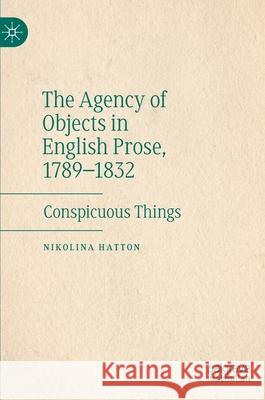The Agency of Objects in English Prose, 1789-1832: Conspicuous Things » książka
topmenu
The Agency of Objects in English Prose, 1789-1832: Conspicuous Things
ISBN-13: 9783030491109 / Angielski / Twarda / 2020 / 247 str.
The Agency of Objects in English Prose, 1789-1832: Conspicuous Things
ISBN-13: 9783030491109 / Angielski / Twarda / 2020 / 247 str.
cena 342,14
(netto: 325,85 VAT: 5%)
Najniższa cena z 30 dni: 327,68
(netto: 325,85 VAT: 5%)
Najniższa cena z 30 dni: 327,68
Termin realizacji zamówienia:
ok. 22 dni roboczych.
ok. 22 dni roboczych.
Darmowa dostawa!
Kategorie:
Kategorie BISAC:
Wydawca:
Palgrave MacMillan
Język:
Angielski
ISBN-13:
9783030491109
Rok wydania:
2020
Wydanie:
2020
Ilość stron:
247
Waga:
0.46 kg
Wymiary:
21.01 x 14.81 x 1.6
Oprawa:
Twarda
Wolumenów:
01
Dodatkowe informacje:
Bibliografia
Wydanie ilustrowane
Wydanie ilustrowane











